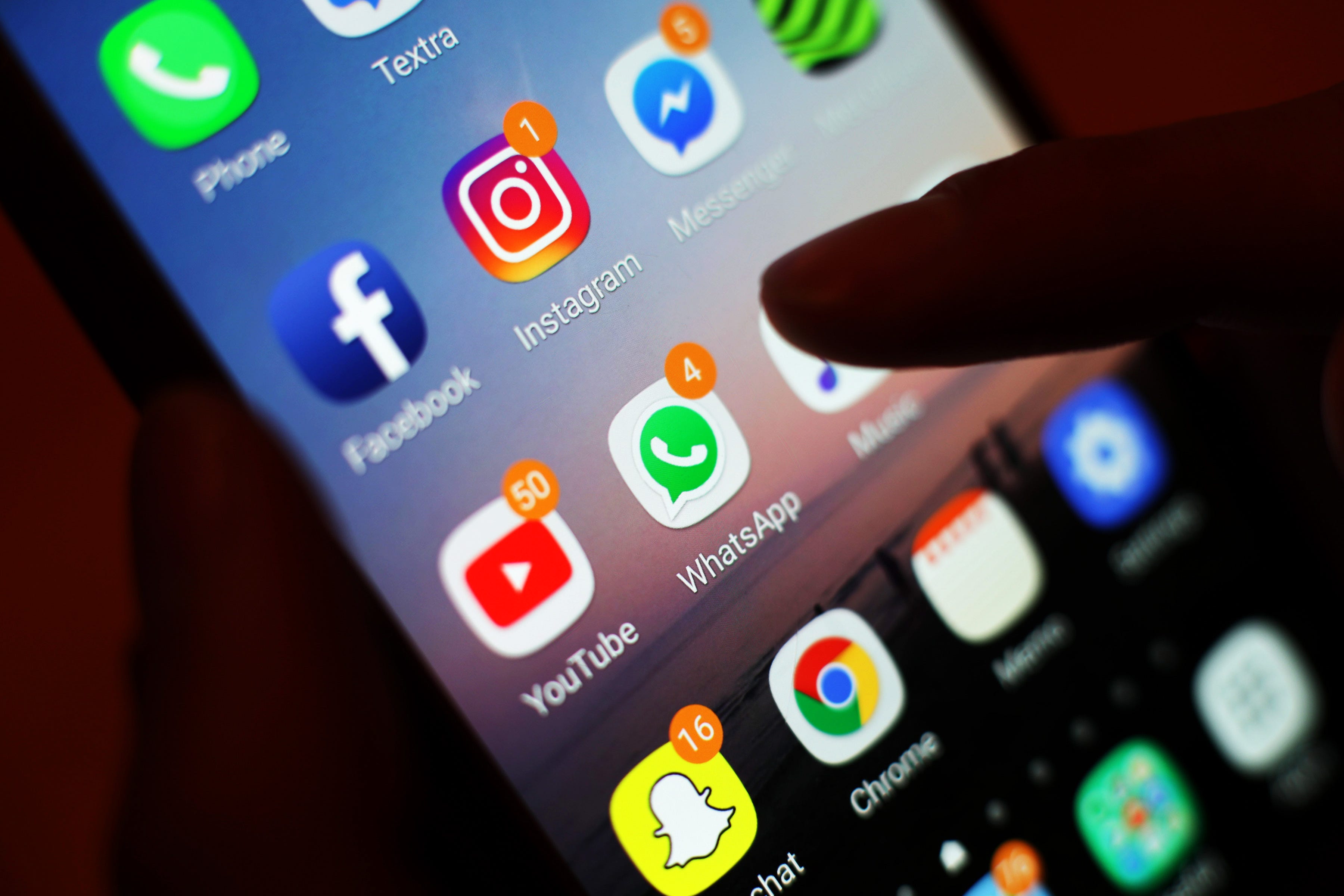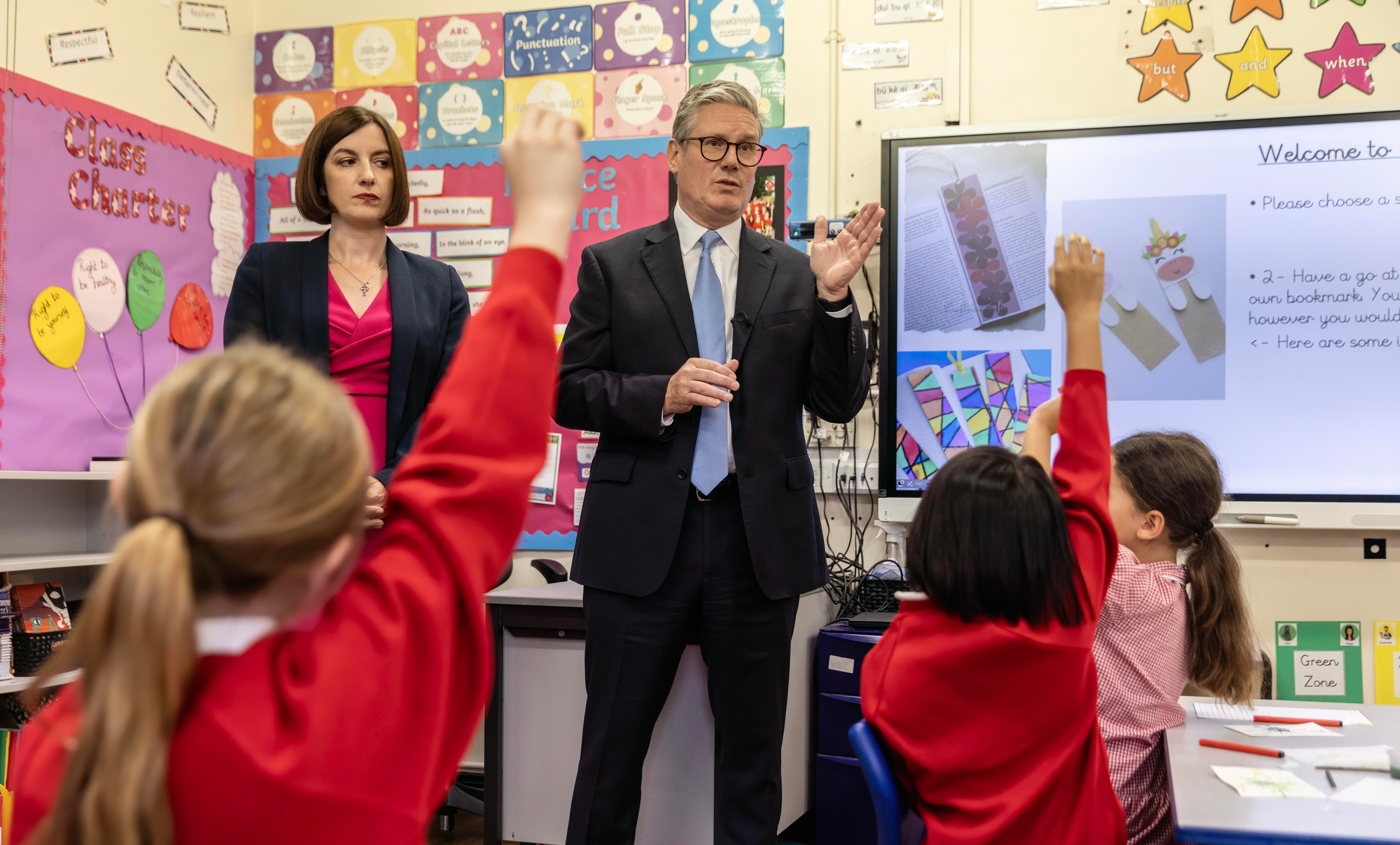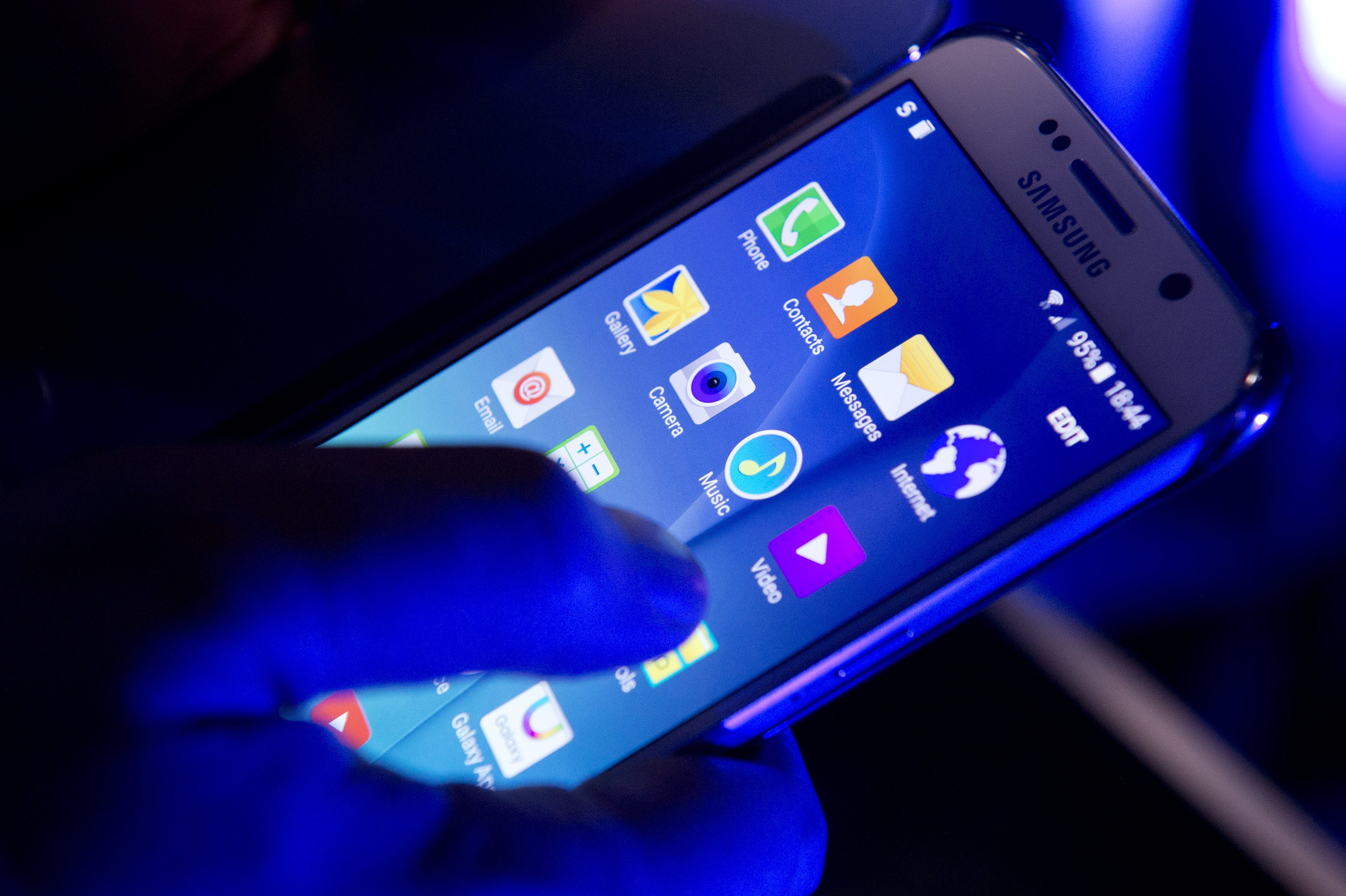First school to ban smartphones adds to pressure on Starmer to protect children
A high performing boys school in London has become the first state school to ban smartphones amid concerns over access to harmful content such as pornography and influencers like Andrew Tate

A boys school in London is believed to be the first state school in the county to ban smartphones for pupils aged 16 and under as pressure mounts on Keir Starmer’s government to introduce wider restrictions.
Fulham Boys School will start the new school year with a policy of so-called “brick” phones for pupils aged between 11 and 16 amid concerns that smartphones were being used to watch porn and harmful influencers.
It comes as two-thirds of parents (62 per cent) said they want their child’s school to remove or ban smartphones according to a major survey by Human Mobile Devices (HMD).

The issue has already come to the door of Downing Street and Sir Keir Starmer’s new government.
However, in July just days after winning the election Sir Keir said he was opposed to a ban.
He told journalists: “In relation to simply banning phones for under 16s, I don't think that's a good idea. I don't think that's a practical way forward.”
According to the UK parents surveyed by HMD, 61 per cent said they were concerned about their child’s phone use and the content they were accessing during their summer holiday break. And some 74 per cent said they were aware their child was using their phone far more during the break compared to term time.
Some 75 per cent of UK parents said social media apps placed their child under too much pressure and thereby impacted their mental health.
Rishi Sunak, Sir Keir’s Tory predecessor, had considered supporting a ban on smartphones for under-16s because of concerns over the psychological harm they were causing as well as the effects of extreme content.
David Smith, headmaster of the high-achieving The Fulham Boys School, said the smartphone ban he is imposing is not being rolled out not to improve attainment but to protect the wellbeing of his students.

Mr Smith made his decision after carrying out an internal survey of his 800 students looking at the impact of smartphone use and social media apps. One of the key findings was that of those students that had smartphones (97 per cent) the majority estimated that they received more than 50 notifications or messages a day, with some saying they received more than 200.
He said that the ban “helps parents and their children make a clear decision on whether or not to bring a smartphone into school.
“If you give it back at the end if the day or after a week, a child will take their chances and it’s important that if this policy is going to work, there is a strong deterrent to stop children from breaking it.”
Mr Smith believes smartphones should only be handed to 16-year-olds, the age at which they are mature enough to handle the device. It is for this reason he has given support for HMD’s The Better Phone Project, where HMD creating a new solution with the help of parents and other experts to address concerns over children’s use of smartphones.
The aim of the year-long collaboration is to create a “better phone”, one that will serve as a compromise between a smartphone and a ‘brick’ phone.
The Fulham Boys School has written to the families of all incoming pupils to inform them of the new policy, which will take effect in September.
Mr Smith said: “I am not anti-technology; the development of technology has brought many wonderful advantages in terms of learning and development.
“The sheer intrusion by smartphones is particularly striking: the impact the device has on sleep, friendships and relationships is immense. Some content encountered online is also an issue.
“We understand how important it is for parents to know their child is safe, which is why it’s important they have a phone they can use to make calls.
“The decision to ban smartphones is about helping to educate parents; helping them to realise they don’t need to hand a smartphone over to their child when they are 10 or 11. And this is also about educating children about how to use phones safely. We provide sex education before children have sex and we should do the same with smartphones.”
Commenting on the Better Phone Project, Lars Silberbauer, CMO of HMD, said: “What our research has told us is that there are parents out there who want an alternative to a smartphone. We hope through co-creation with parents, young adults and experts, we will get to a point where we create a balanced and positive relationship with technology for people that has everything they need, and nothing they don’t need.”
The decision by Mr Smith sees him follow in the footsteps of Eton. Earlier this year the elite private school announced it is banning new pupils from bringing smartphones to school and will give them a basic device instead.
Join our commenting forum
Join thought-provoking conversations, follow other Independent readers and see their replies
Comments
Bookmark popover
Removed from bookmarks